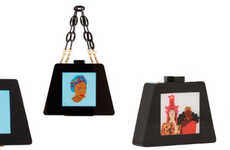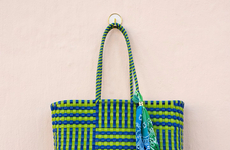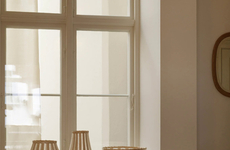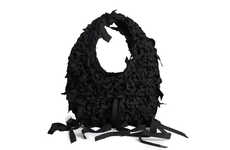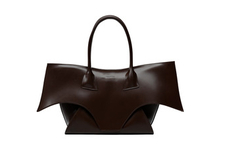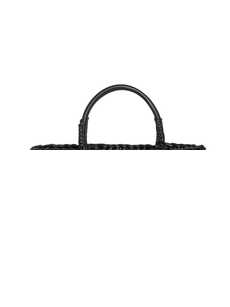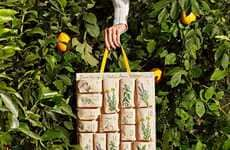
Uri is a London-Based Handbag Label Rooted in Filipino Heritage
Elena Rahman — July 20, 2021 — Fashion
References: uri.studio & wallpaper
The Uri handbag label by creative producer Charly Jacobs is rooted in the founder's cultural heritage. As Jacobs embarked on motherhood, she was promoted to imagine sustainable solutions to foster an eco-friendly lifestyle for her daughter.
Jacobs dove into discovering natural materials, handcrafted traditions, and tribal communities to harness the charm and artistic beauty of the Philippines. This resulted in Uri's handwoven basket handbags. The London-based company uses natural and undyed plant fibers to create each handwoven basket. Using a range of Abaca to pandan leaves, every Uri basket is assembled in the Philippines and finished in the UK. The brand patterned with a network of farmers and weavers to develop a sustainable practice while retaining tradition.
Image Credit: Uri
Jacobs dove into discovering natural materials, handcrafted traditions, and tribal communities to harness the charm and artistic beauty of the Philippines. This resulted in Uri's handwoven basket handbags. The London-based company uses natural and undyed plant fibers to create each handwoven basket. Using a range of Abaca to pandan leaves, every Uri basket is assembled in the Philippines and finished in the UK. The brand patterned with a network of farmers and weavers to develop a sustainable practice while retaining tradition.
Image Credit: Uri
Trend Themes
1. Sustainable Handbags - The trend of eco-friendly and sustainable luxury handbags made from natural and undyed plant fibers
2. Handcrafted Tradition - The trend of embracing and honoring traditional handcrafted techniques and engaging with tribal communities
3. Cultural Heritage - The trend of celebrating cultural heritage through fashion and creating unique designs inspired by ancestral traditions and art
Industry Implications
1. Fashion - Opportunities for luxury and sustainable fashion brands to incorporate traditional handmade techniques and collaborate with tribal communities to create unique pieces inspired by cultural heritage
2. Sustainability - Opportunities for sustainable and eco-friendly practices to be integrated into the fashion industry by using materials like natural plant fibers and collaborating with farmers and weavers to reduce the carbon footprint
3. Philippine Handcrafting - Opportunities for promoting the Philippine handcrafting industry by showcasing their unique artistry and traditional techniques, while also boosting economic growth and supporting tribal communities
3.7
Score
Popularity
Activity
Freshness



